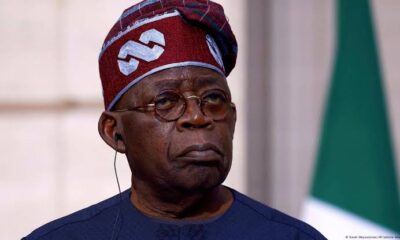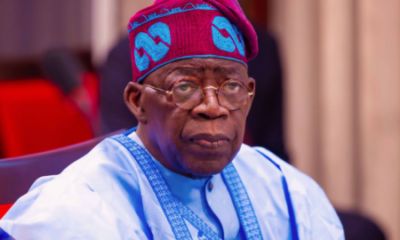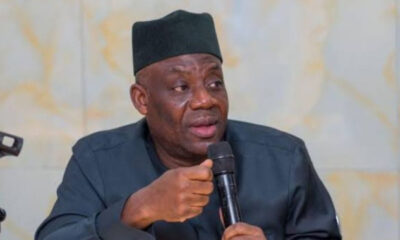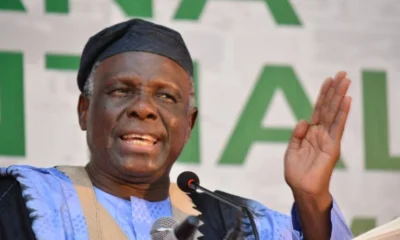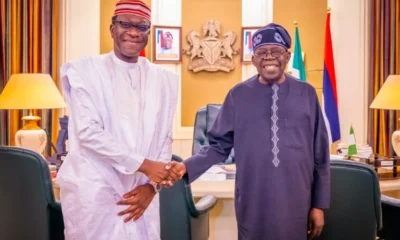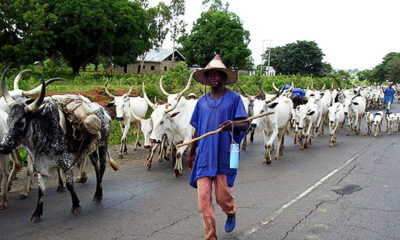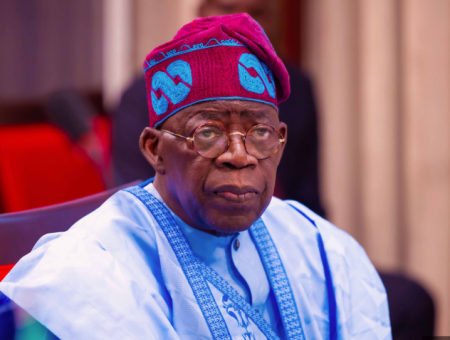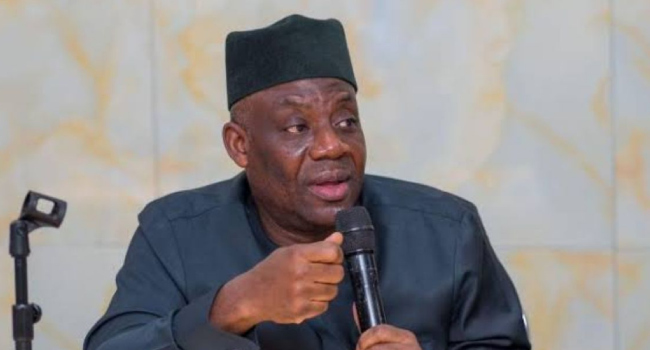The North gave a positive assessment of President Bola Ahmed Tinubu’s administration on Wednesday, following presentations by Federal Executive Council members and top government officials. Those present included the National Security Adviser Nuhu Ribadu, Chief of Defence Staff Gen. Christopher Musa, and governors such as Northern States Governors’ Forum Chairman Inuwa Yahaya (Gombe) and host Governor Uba Sani (Kaduna).
The rating followed a two-day roundtable on Government-Citizen Engagement hosted by the Sir Ahmadu Bello Memorial Foundation (SABMF) in Kaduna. A communiqué released after the sessions noted that participants praised the government’s effective delivery of electoral promises, particularly in areas such as security and infrastructure.
Participants also urged greater investment in education to tackle the issue of out-of-school children, especially in Northern Nigeria.
Minister of Information and National Orientation Mohammed Idris stated that “the verdict from most northern opinion leaders, technocrats, and academics, amongst others, is that the Tinubu Administration is a pro-North in all ramifications – from appointments to spending on the region in infrastructure, health, education, agriculture, livestock, housing, and the unprecedented opportunity it offers for the northern youth.” He added that the ministers and agency heads at the event effectively communicated the administration’s achievements.
Four ministers – Atiku Bagudu (Budget and National Planning), Muhammad Ali Pate (Coordinating Minister, Health and Social Welfare), Saidu Alkali (Transportation), and Aliyu Abdullahi (Minister of State for Agriculture and Food Security) – presented the government’s accomplishments, providing evidence that the North had benefited significantly from the Tinubu administration.
The gathering was used to evaluate the administration’s performance and to promote inclusive and transparent governance.
The communiqué outlined that SABMF held the session at Arewa House in Kaduna from July 29 to 30, 2025, with the theme “Assessing electoral promises: Fostering Government-Citizen Engagement for National Unity.” Abdulrahman Abdulrazaq, Chairman of the Governors’ Forum, represented President Tinubu, while Dr. Aliyu Modibbo Umar, Special Adviser to the President on Special Duties (Office of the Vice President), represented Vice President Kashim Shettima.
Governor Uba Sani served as chief host, and NSGF Chairman Inuwa Yahaya also attended as a special guest. The event was attended by Federal Government representatives, including Secretary to the Government of the Federation Senator George Akume, National Security Adviser, FEC members, federal agency heads, Chief of Defence Staff, and other security chiefs from Northern Nigeria.
The engagement brought together government officials, civil society, academics, traditional and religious leaders, private sector stakeholders, and development partners to discuss electoral promises, governance, and strategies to enhance citizen participation in national unity.
Also present were the Sir Ahmadu Bello Memorial Foundation leadership, headed by Muazu Babangida Aliyu, and the Arewa Consultative Forum, led by Alhaji Bashir Dalhatu.
In addition to goodwill messages and opening remarks, the Foundation appreciated President Tinubu for sending a high-level delegation and continuing a tradition of engagement that began in October 2022.
Keynote speaker Prof. Tijjani Mohammed Bande highlighted regional and national issues, noting their connection to global events. He emphasized Nigeria’s resilience in confronting insecurity, poverty, and educational challenges. He encouraged the North to develop a comprehensive strategy to advance its interests in line with national development objectives.
The session reflected the North’s key role in Nigeria’s political and economic stability, as well as its significant electoral support for Tinubu. The event included plenary discussions on security, governance, economy, agriculture, infrastructure, and human capital development.
Stakeholders commended the government’s effective delivery of its electoral promises, especially in security, infrastructure, and economic reforms.
The summit made the following observations and resolutions:
Key Observations
The administration showed a willingness for dialogue and ongoing engagement with citizens.
The government performed commendably in delivering promises related to security, infrastructure, and economic reforms.
The North plays a significant role in national stability, development, and elections.
The issue of Almajiri and out-of-school children remains a major concern.
Equitable resource allocation is vital for addressing regional imbalances.
Major infrastructure projects are underway, including highways, gas pipelines (AKK), oil exploration (Kolmani), and irrigation schemes.
Developing agricultural value chains and rural industries is important for job creation and food security.
Economic and security reforms must be inclusive and community-focused.
Stronger federal-state cooperation is necessary for regional development.
Key Resolutions
Proposed regular government-citizen dialogue forums at both national and state levels.
Applauded the government’s achievements in key areas like security and infrastructure.
Welcomed more equitable resource allocation to states.
Recommended increased education funding to address the out-of-school crisis.
Called for faster infrastructure development, support for agriculture, and creation of agro-industrial zones.
Endorsed community-driven and inclusive approaches to economic and security policies.
Encouraged collaboration with civil society, traditional, and religious leaders for public advocacy.
Advocated responsible media practices to build trust and unity.
Urged Northern states to strengthen cooperation and their engagement with the federal government.
The summit concluded that the North acknowledges the administration’s strong performance while recognizing existing challenges. Participants called for transparency, fairness, and equity as cornerstones of unity and democracy. They emphasized ongoing collaboration among all stakeholders as essential for peace and prosperity.
The communiqué was signed by SAMF Director General Abubakar Gambo Umar.
Chairman of the Foundation’s Board of Trustees, Mu’azu Babangida Aliyu, urged Northern elites to move past political rivalries and work collectively for regional progress. He expressed concern over the decline in unity and leadership, contrasting the present with the era of leaders like Sir Ahmadu Bello.
He emphasized the importance of supporting Northerners in government, noting that they represent broader regional interests. “No politician from the North can claim today that we don’t have people in government. What we need is to own them, guide them, and ensure they act in our collective interest,” Aliyu said.
Coordinating Minister of Health Muhammad Ali Pate revealed that over N20 billion had been disbursed through the Basic Health Care Provision Fund to support 4,362 primary health centers across the 19 Northern states and the FCT in the last two years. He also mentioned 274 projects in 35 tertiary hospitals in the region, serving over 4.5 million outpatients and 1.6 million inpatients. Pate affirmed the administration’s commitment to improving health infrastructure nationwide.
Transportation Minister Saidu Alkali said the North is one of the biggest beneficiaries of the administration’s infrastructure agenda. He noted that the Kaduna–Kano standard gauge rail project, which was at 15 per cent completion in May 2023, would be completed next year. He also reported progress on the Kano–Maradi line and the Port Harcourt–Maiduguri corridor, along with the rehabilitation of the Lagos–Kano narrow gauge to boost freight transport and dry port operations in Kano and Kaduna.
Alkali highlighted the 1,068-kilometre Sokoto–Badagry Superhighway, linking several states, as a flagship project. “The North is not left out. It is reaping big from this government’s infrastructure revolution. From roads and rail to inland ports and power, the evidence is on the ground,” he said.
Minister of State for Agriculture Aliyu Abdullahi said the government inherited a food crisis and responded with targeted, data-based solutions. He insisted that only real farmers now benefit from government programmes. “No more briefcase farmers,” he declared.
He reaffirmed that the food emergency declared by the president remained in effect, with efforts focused on increasing production, stabilizing food prices, and expanding access. The Agro-Pocket initiative cultivated over 133,000 hectares of wheat in 15 Northern states, surpassing its 130,000-hectare target. Over 50,000 hectares were in Jigawa alone.
He added that rice farmers are also being supported under a plan involving 44,500 producers, with improved extension services addressing the poor farmer-to-extension agent ratio.
Abdullahi said a farmer data audit and registry was being created to eliminate intermediaries and ensure direct support. He also highlighted livestock initiatives such as grazing reserves, livestock villages, and shelters, as well as efforts to develop a national dairy policy. He called on the North to resist those who exploit the system at the expense of genuine farmers.
Minister of State for Works Bello Muhammad Goronyo described the Sokoto–Zaria Highway as an economic lifeline, noting that four contractors were actively working on the project.

 BIG STORY3 days ago
BIG STORY3 days ago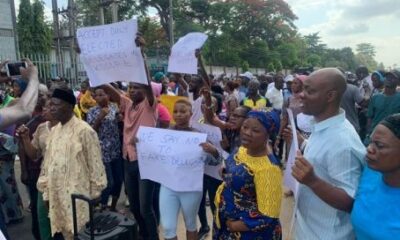
 BIG STORY3 days ago
BIG STORY3 days ago
 BIG STORY3 days ago
BIG STORY3 days ago
 BIG STORY2 days ago
BIG STORY2 days ago
 BIG STORY22 hours ago
BIG STORY22 hours ago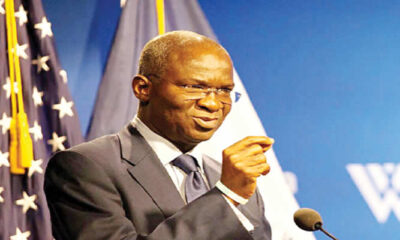
 BIG STORY1 day ago
BIG STORY1 day ago
 BIG STORY3 days ago
BIG STORY3 days ago
 BIG STORY3 days ago
BIG STORY3 days ago







